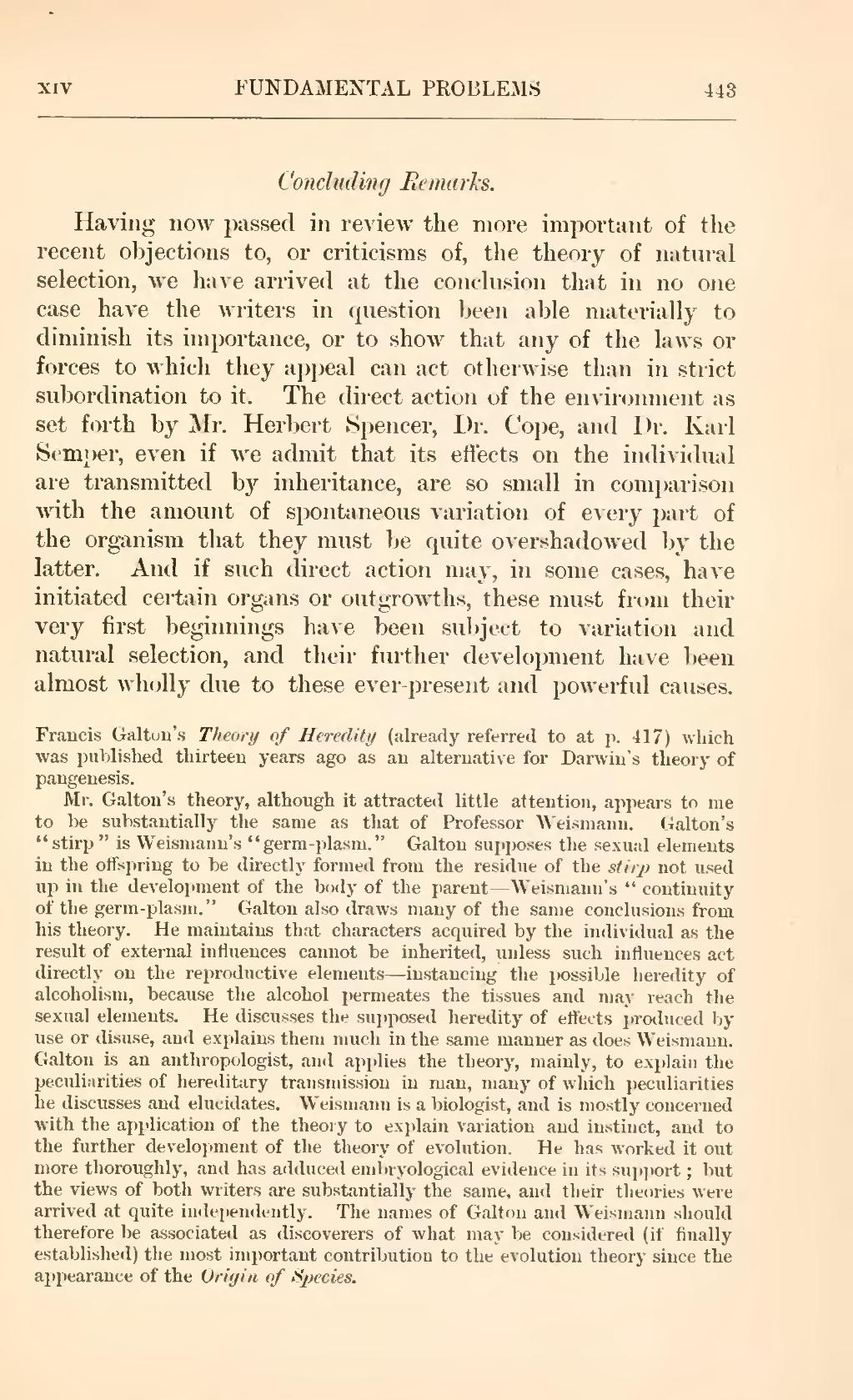Concluding Remarks.
Having now passed in review the more important of the recent objections to, or criticisms of, the theory of natural selection, we have arrived at the conclusion that in no one case have the writers in question been able materially to diminish its importance, or to show that any of the laws or forces to which they appeal can act otherwise than in strict subordination to it. The direct action of the environment as set forth by Mr. Herbert Spencer, Dr. Cope, and Dr. Karl Semper, even if we admit that its effects on the individual are transmitted by inheritance, are so small in comparison with the amount of spontaneous variation of every part of the organism that they must be quite overshadowed by the latter. And if such direct action may, in some cases, have initiated certain organs or outgrowths, these must from their very first beginnings have been subject to variation and natural selection, and their further development have been almost wholly due to these ever-present and powerful causes.
Francis Galton's Theory of Heredity (already referred to at p. 417) which was published thirteen years ago as an alternative for Darwin's theory of pangenesis.
Mr. Galton's theory, although it attracted little attention, appears to me to be substantially the same as that of Professor Weismann. Galton's "stirp" is Weismann's "germ-plasm." Galton supposes the sexual elements in the offspring to be directly formed from the residue of the stirp not used up in the development of the body of the parent—Weismann's "continuity of the germ-plasm." Galton also draws many of the same conclusions from his theory. He maintains that characters acquired by the individual as the result of external influences cannot be inherited, unless such influences act directly on the reproductive elements—instancing the possible heredity of alcoholism, because the alcohol permeates the tissues and may reach the sexual elements. He discusses the supposed heredity of effects produced by use or disuse, and explains them much in the same manner as does Weismann. Galton is an anthropologist, and applies the theory, mainly, to explain the peculiarities of hereditary transmission in man, many of which peculiarities he discusses and elucidates. Weismann is a biologist, and is mostly concerned with the application of the theory to explain variation and instinct, and to the further development of the theory of evolution. He has worked it out more thoroughly, and has adduced embryological evidence in its support; but the views of both writers are substantially the same, and their theories were arrived at quite independently. The names of Galton and Weismann should therefore be associated as discoverers of what may be considered (if finally established) the most important contribution to the evolution theory since the appearance of the Origin of Species.
